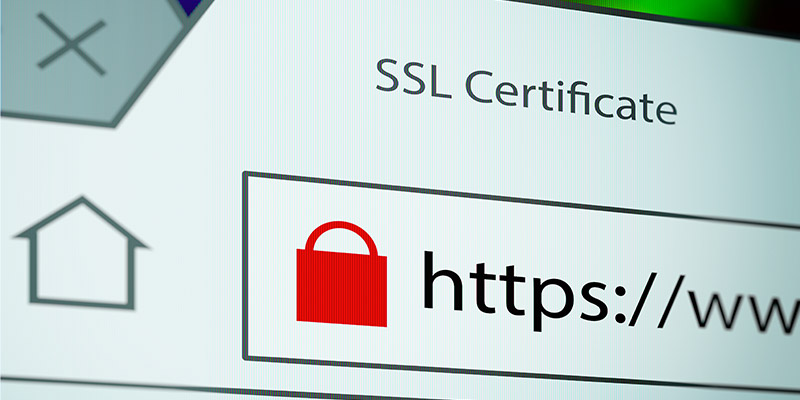Securing your website


Securing your website
Have you ever noticed that some URL’s differ when you are using the internet? For instance, sometimes it can read ‘HTTP’ whilst other times it will read ‘HTTPS’?
So what does the extra ‘S’ stand for?co
To put it simply, it means that all communication between your web server and the browser is encrypted when HTTPS appears. This link ensures that all data passed between the web server and browser remains private. It will stop hackers obtaining highly sensitive information if you are paying for an item or inputting sensitive information. There are many ways that information can be ‘intercepted’, with the most common being this. If you were to use HTTP whilst inputting sensitive information, such as online banking, then the following interception can happen. A hacker places a programme on the server with a listening device. This is triggered when you input your information and this is then captured and sent back to the hacker.

So what is an SSL?
When you visit a website that is encrypted with Secure Socket Layers (SSL), your browser will check for a secure connection with the website. It will see whether there is a SSL certificate, and then it will tie this in with the browser and server. This connection is secure and it ensures that no one other than you and the website you are accessing can obtain this information.
When a trusted SSL certificate is in place, users will see a padlock icon in the browser address bar and when an Extended Validation Certificate is installed on a website, the address bar will turn green.
Is SSL good for SEO?
Whilst SSL is primarily used for securing information between user and website, Google are now using HTTPS as a ranking signal. Google have released the following statement:
“We’ve also seen more and more webmasters adopting HTTPS on their website, which is encouraging. For these reasons, over the past few months we’ve been running tests taking into account whether sites use secure, encrypted connections as a signal in our search ranking algorithms. We’ve seen positive results, so we’re starting to use HTTPS as a ranking signal…. … we’d like to encourage all website owners to switch from HTTP to HTTPS to keep everyone safe on the web.”
So what if I don’t get SSL?
Google’s browser Chrome, has recently announced that websites with insecure HTTP connections will be labeled to warn users that secure information, such as logins, passwords, customer’s contact details such as telephone numbers and email address as well as bank details, may be compromised. This obviously impacts e-Commerce businesses since customers may be put off from purchasing goods from sites that do not have an authorised SSL certificate.
As more businesses go HTTPS with their websites, sites lacking the HTTPS status will increasingly seem old-fashioned and untrustworthy by comparison. No-one wants the liability, bad publicity, distraction and wasted time and money associated with having their website hacked or customer’s privacy compromised.
How can I get a SSL certificate for my website?
If you want to get a SSL certificate for your website, first you’ll need to figure out which type of certificate will suit you best taking into consideration how many certificates you need and which domains you need to secure. Finally, you need to consider the validity period too – most standard certificates are available for one to two years whilst there are other long-term options obtainable too.
For further information, please contact us at Verve and we will happily talk through the options and prices with you.

